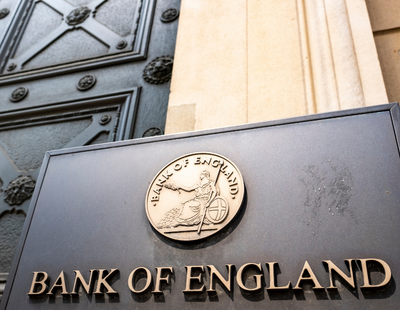It has certainly been a very busy week for news in the housing sector.
Here, the first of a new series of comment pieces, Jonathan Rolande from the National Association of Property Buyers (NAPB), reviews the main takeaways from the events of the past seven days.
If anyone wanted a reminder that things are tough out there right now it came with the news at the start of the week.
Headlines everywhere underlined how average UK house prices fell by around £1,000 in April, bringing to an end three months of increases.
The data came via the latest Halifax House Price Index which is one of many house price indexes that have been showing a mixed picture of where the property market is heading. Be under no illusion, prices are still falling – it isn’t easy out there.
But the rate of decline is slowing.
There is still a huge appetite to buy property. Why? Borrowed money is still relatively cheap and it may be getting cheaper still soon.
Yes there are minute drops each month but faced with the alternative – renting – buying seems like the sensible choice for many who don’t want to pay ever-increasing rents with a side order of insecurity.
What we have now isn’t a boom, but it certainly isn't a bust either. It is the property pendulum swinging back to the middle, where it is just as tough to sell a property, as it is to buy one.
One thing is for certain, the Bank Of England is not going to assist in delivering a boost to the market anytime soon.
This week came the expected news of another rate rise with levels pushed to 4.5 percent. This is the 12th consecutive rate rise.
The rise, although not a shock, was still very disappointing.
The Bank of England has very limited tools to combat the inflation that is making life so difficult, raising interest rates is one of them. Housing costs such as mortgages and rents have rocketed in the last two years – up 26% on average. The rise in rates may help to control these increases eventually but in the short term, it will cause more misery to millions of homeowners and tenants, who often see rents rise in line with the cost of their landlord’s mortgage.
This is the 12th increase in a row and is one that could potentially snuff out the mini-recovery that has begun this spring. We must hope there isn't a 13th.
One place I suspect that sentiment will be echoed is at Purplebricks.
Its shares plummeted 60 percent amid fears over cashflow. Purplebricks may yet find a buyer, and a way to carry on trading in some form.
But not as before. The huge salaries, millions pumped into tv, print and online advertising will not return.
It feels as if the great disruptor has itself been disrupted. Shares have plummeted and major investors – those that were left – are jumping, recouping what they can before the likely/inevitable happens.
It was all so different in 2017 when shares peaked as investors flocked to buy, hopeful that a rising property market and a tech-savvy new kid on the block would be all it took to change estate agency forever.
Back then a thousand shares would cost you £5000, those same shares today can be had for under £14. And yet all the burned cash did achieve something, it made Purplebricks a household name in just a few short years. It became a generic trademark, its name used to mean any online estate agency. Quite an achievement. So what went wrong ?
The reasons are many, Covid, a less bullish market, poor feedback, customer service levels that didn’t inspire confidence, a reluctance by traditional agents to trust chains they were involved in, a very public accounting scandal, overreach in to the overseas market… it’s a long list.
But at its heart, the business model is itself flawed. The internet has revolutionised the property market, just think how we all rely on it for research, images, street views, floorplans, sold data and much more. The mistake Purplebricks made was to assume that the internet itself was the answer, that buyers and sellers would adopt it just as they have for online shopping.
They didn’t and I believe they never truly will.”




.png)





















Join the conversation
Be the first to comment (please use the comment box below)
Please login to comment